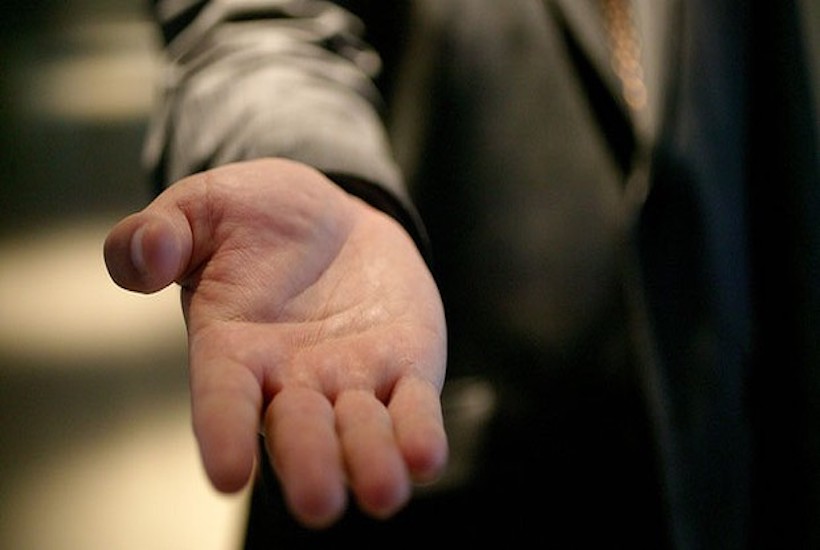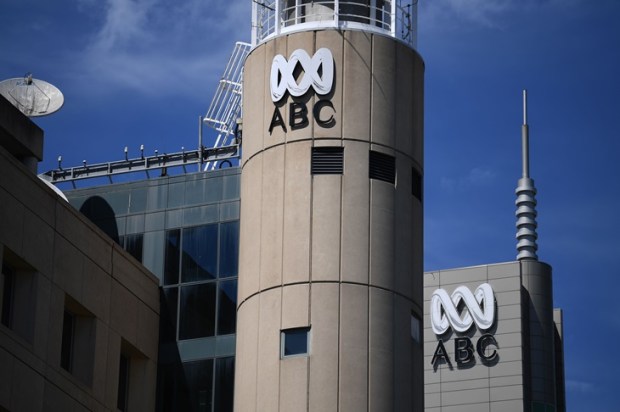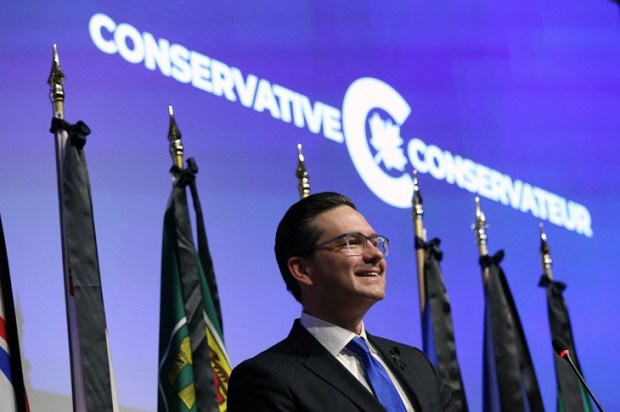Just last week, The Australian’s economics editor – a one-time leader writer for the Spec Oz, Adam Creighton — published a piece calling for increases in income taxes on the very wealthy. Apparently a 67 per cent top marginal tax rate “sounds about right” to him, and the income tax system should be reformed so that burden would fall on “taxpayers who would barely notice it”.
Was this not written by the same person who in 2014 argued that “high-income earners have become a giant piñata that the majority hit for extra money to pay for whatever new social spending programs the political class proposes to stay in office”?
Again in the words of Creighton: “It is absurd to claim the ‘rich’ – assuming incomes rather than wealth are the defining criterion – aren’t paying their ‘fair share’ of tax when they in fact pay all of it”.
It seems that Creighton has turned over a new leaf.
To give him credit, he does make some valid points. He notes that “oligopoly, soft corruption, regulator capture and huge direct and indirect subsidies to various industries” mean that some individuals may gain their incomes not from effort and innovation, but from cronyism.
While that may be correct, the cure is not to punish those who seek special favours but to remove the ability of governments to grant such favours. It seems that rather than sticking to his long-standing principles of a limited government, Creighton has fallen victim to the politics of envy.
It is not only the principle of increasing income taxes that shouldn’t sit well. There are a number of problems with his supporting arguments too.
Firstly, Creighton makes the argument that those earning $400,000 per annum and those earning $800,000 each year should be taxed at different rates because the latter wouldn’t notice the theft of $1,000 as much as the former. Creighton has no idea what the circumstances of any given individual or family are, so why should he decide who will and will not notice what?
Secondly, he argues that a very high top marginal rate would provide “political cover”. So now Creighton is in the business of justifying policies because, well, it doesn’t matter as long as you hate the rich. He claims that this political cover would allow government to reform middle-income tax, making no mention of the fact that the top 20 per cent of income earners already pay 80 per cent of income tax. Is it necessary to increase this burden further, regardless of whether it delivers “political cover” or not?
Thirdly, Creighton argues that such tax rates are not unheard of historically, having existed in the 25 years after the Second World War when economic growth per capita and productivity were much higher. This is a simplistic view of the world, and a disappointing argument. In these glorious 25 years, the tax to GDP ratio decreased from 22 per cent at the end of the war to 18 per cent in 1963-64. The trend since then has been a steady increase to 27.76 per cent in 2016. Could the decrease in economic growth and productivity be linked to the rise in tax across the board? Or could it be because Australia has an all-time high social security spending of 19.1 per cent of GDP? Could the growth of government be a cause? Is it because of the increasing red tape and regulation stifling productivity? The issue is more complex than Creighton’s false dichotomy.
Finally, Creighton argues that wealthy Australians should be taxed more so they stop buying cocaine. Citing the increasing price and volume of cocaine trafficked into Australia (but not cocaine use across the income spectrum); he figures that if ‘the rich’ had less money, they wouldn’t be buying such drugs. Now this may be radical, but perhaps the main reason why cocaine fetches one of the highest prices in the world in Australia is because it is illegal. Complaining about people taking drugs is an ineffective policy, and rather than punishing all high-income earners with higher taxes regardless of their behaviour, why not legalise drugs so they can be provided with government oversight. If cocaine were sold legally it could be taxed, and Adam and the Treasury could laugh their way to the bank.
Simplistic analysis like this may be laughed off, but it is dangerous. These arguments, presented by a usually firm believer in the genuine ability of the free market, give deadly ammunition to those who pursue a collectivist society where the politics of envy prevail. Rather than giving them bullets by putting his credentials behind such ideas, Creighton should be disarming the confiscatory types with economic and historical rigor.
Cian Hussey is a Research Analyst at the Mannkal Economic Education Foundation.
Got something to add? Join the discussion and comment below.
Got something to add? Join the discussion and comment below.
Get 10 issues for just $10
Subscribe to The Spectator Australia today for the next 10 magazine issues, plus full online access, for just $10.


























Comments
Don't miss out
Join the conversation with other Spectator Australia readers. Subscribe to leave a comment.
SUBSCRIBEAlready a subscriber? Log in